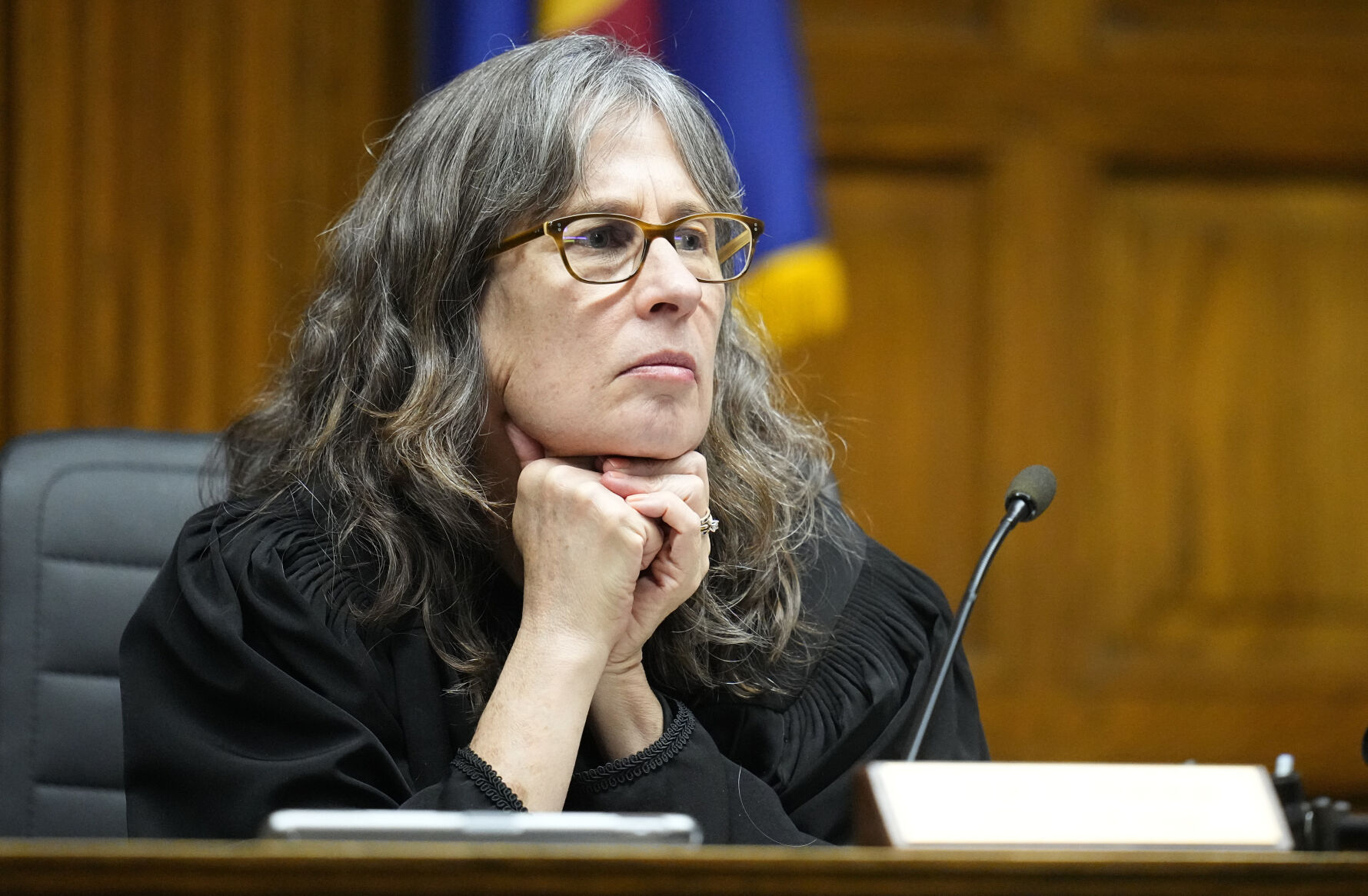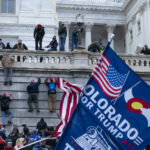The disqualification case versus Donald Trump: A timeline

The court case culminating in Donald Trump’s disqualification from next year’s primary ballot moved quickly and implicated weighty issues of constitutional interpretation. Here is a look at the events leading up to the Colorado Supreme Court’s decision:
Nov. 3, 2020
Democrat Joe Biden defeated Republican Donald Trump, the incumbent president. The presidential election was historic in several ways. Notably, it took place against the backdrop of a global pandemic and voter turnout surpassed records. Major news networks held off on declaring Biden’s victory, as several states were still counting ballots. As expected, the race was closely contested. Arizona, a reliably Republican state, gave Biden a narrow 10,000-vote victory, becoming the first Democrat to win the state since Bill Clinton in 1996. In Colorado, Biden’s victory was decisive, winning roughly 14 points more than the incumbent. Trump refused to immediately concede defeat.
Jan. 6, 2021
A mob of Trump’s supporters attacked the U.S. Capitol to halt the certification of Biden’s electoral victory. Prior to the attack, Trump gave a speech at the White House Ellipse to tens of thousands of supporters, telling them to “fight like hell” and march to the Capitol.
Nov. 15, 2022
Trump announced that he would again run for president at Mar-a-Lago in Florida.
Sept. 6, 2023
Four Republican and two unaffiliated voters filed a petition seeking to bar Trump from the 2024 ballot, arguing he engaged in an insurrection on Jan. 6 and the months leading up to it. In their 115-page petition, the voters relied on state law and in the 14th Amendment’s prohibition on certain state and federal officials holding future office if they “engaged in insurrection or rebellion.” The extraordinary move to bar a presidential candidate from the ballot relied on a recent case in New Mexico, in which courts removed a local elected official from his position due to his involvement in the Jan. 6 attack.
Sept. 18
District Court Judge Sarah B. Wallace granted the state Republican Party’s motion to participate in the case.
Oct. 5
Wallace granted Trump’s motion to participate in the case.
Oct. 11
Wallace declined to dismiss the case based on Colorado’s 2019 “anti-SLAPP” law, which stands for “strategic lawsuits against public participation.” The legislature enacted the law to provide a mechanism to quickly dispose of litigation that implicates a person’s First Amendment rights – specifically, the rights to free speech and to petition the government.
Oct. 20
Wallace denied Trump’s motion to dismiss on other grounds.
Oct. 27
The Colorado Supreme Court declined to intervene and dismiss the case as Trump requested.
Oct. 30-Nov. 3
More than one dozen witnesses testified in a hearing about whether the 14th Amendment disqualifies Trump from the presidency based on his conduct leading up to Jan. 6.
Nov. 15
Wallace held closing arguments. “The rule of law must apply whether a candidate has no chance of winning an election or if they are a frontrunner,” said Sean Grimsley, an attorney for the petitioners. “Trump engaged in insurrection against the Constitution. The Constitution is clear. He cannot be president again.” Trump’s attorney, Republican former Secretary of State Scott Gessler, stressed that Trump’s candidacy is an issue for voters and not subject to a judge’s views about the 14th Amendment. “We vote on these issues,” he said. “To put it more crudely: When you have a hammer – when the court system is that hammer – not every problem is a nail.”
Nov. 17
Wallace went further than any judge to date in analyzing Trump’s eligibility for office under Section 3 of the 14th Amendment and concluded the former president engaged in an “insurrection.” Wallace, however, decided that the 14th Amendment does not apply to the presidency or to presidential candidates. “To be clear, part of the Court’s decision is its reluctance to embrace an interpretation which would disqualify a presidential candidate without a clear, unmistakable indication that such is the intent,” she wrote in a Nov. 17 order. But Wallace also concluded that Trump “cultivated a culture that embraced political violence through his consistent endorsement of the same.” She added: “He responded to growing threats of violence and intimidation in the lead-up to the certification by amplifying his false claims of election fraud. He convened a large crowd on the date of the certification in Washington, D.C., focused them on the certification process, told them their country was being stolen from them, called for strength and action, and directed them to the Capitol where the certification was about to take place.”
Nov. 20
The parties begin filing their appeals in the Colorado Supreme Court. The petitioners argued the historical record belied the notion that the president is not “an officer of the United States,” and pointed out Trump himself claimed he was such an officer in one of his criminal cases this year. Trump’s lawyers contested the bulk of Wallace’s other conclusions – specifically, that she had jurisdiction to hear a Section 3 challenge in the first place, that Trump engaged in an insurrection, and that the First Amendment did not protect Trump’s efforts to halt the certification of President Joe Biden’s victory. Others also chimed in, offering analysis and critiques. “My suspicion is that having built a wall of fact and law so high that no appellate court can climb over it,” said constitutional scholar Laurence H. Tribe on MSNBC, “she threw him a lifeline that was thin, so threadbare, so likely to fall apart, that although he could claim victory, no appellate court could uphold putting him on the ballot on that basis. So, she basically had it both ways.”
Dec. 6
Colorado Supreme Court justices held oral arguments in the case, and some appeared hesitant to disqualify Trump. “If it was so important that the president be included, I come back to the question, why not spell it out?” Justice Carlos A. Samour Jr. asked. Section 3 refers to members of Congress, as well as presidential and vice presidential electors, but not specifically the president. “Why not include president and vice president in the way they spell out senator or representative?” Samour would later dissent from the decision to disqualify Trump. Justice William W. Hood III showed skepticism towards Trump’s argument. “Why isn’t it enough that a violent mob breached the Capitol when Congress was performing a core constitutional function? In some ways, that seems like a poster child for insurrection,” said Hood, who eventually joined the majority in disqualifying Trump.
Dec. 19
The Supreme Court, 4-3, agreed that Trump is constitutionally disqualified from the presidential primary ballot because he engaged in insurrection. The unsigned opinion was the first by any state supreme court to address head-on the substantive arguments of Trump’s – or any presidential candidate’s – eligibility, given the allegations that Trump engaged in an insurrection on Jan. 6, 2021. “We do not reach these conclusions lightly. We are mindful of the magnitude and weight of the questions now before us. We are likewise mindful of our solemn duty to apply the law, without fear or favor, and without being swayed by public reaction to the decisions that the law mandates we reach,” the opinion from the four-justice majority read. Three justices dissented, two of whom voiced concerns about the former president’s right to due process. “From my perspective, just because a hearing was held and (Trump) participated, it doesn’t mean that due process was observed,” wrote Chief Justice Brian D. Boatright. “The decision to bar former President Donald J. Trump,” added Justice Carlos A. Samour Jr., “flies in the face of the due process doctrine.”
Jan. 4, 2024
The last day Trump has to appeal to the U.S. Supreme Court in order to put the state Supreme Court’s decision on hold and continue on the ballot.
Jan. 5, 2024
The deadline for Secretary of State Jena Griswold to certify the 2024 presidential primary ballot. Jan. 20 is the deadline for county clerks to transmit the ballot to military and overseas voters. Feb. 2 is the day that ballots must be in possession of county clerks.
March 5, 2024
Colorado will hold its presidential primary election.

luige.delpuerto@coloradopolitics.com













